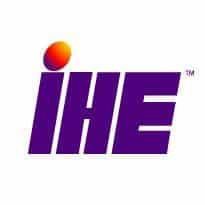NHS must use international IT standards
- 19 September 2014

The NHS needs to use international IT standards if it is to make the most of the current drive towards more integrated care, the chair of IHE UK has argued.
Neil Robinson, who will be chairing a meeting on ‘interoperability in live action’ next week, pointed out that there has been renewed interest from policy makers in integrated care, as a result of the financial and demographic pressures on the NHS.
This has shown up in specific initiatives such as the integrated digital care record exemplars supported by NHS England through the technology fund, and the integrated digital care pioneers supported by care minister Norman Lamb with funding from the Department of Health, which have a technology component.
Robinson noted that the organisations involved in these different projects were taking a variety of approaches to creating shared records and information exchanges. And he warned that this could, ironically, lead to divergent approaches across the country that would create new information silos.
“We are at the point where we have quite a lot of different initiatives that all have, at their heart, the idea that we need to talk to each other,” he told EHI. “You have done something to one of my patients, and I need to talk to you about it, or I have done something for a patient and I need to tell them.
“If we are going to grasp this opportunity and make the most of the value of this investment, we need to make sure that people are working with published, international standards.
“Otherwise, we could potentially end up with a fractionalised health and social care environment; which is the precise opposite of what we want. [People working on projects] won’t get to where they want to be, or [they] will find that the cost of getting back to where they want to be is high.”
IHE UK is a non-profit association, dedicated to promoting interoperability in health information technology. It promotes interest in standards for recording and exchanging information, and in ‘profiles’ that enable these to be used for specific healthcare interactions.
Despite this, Robinson said that people planning integration projects needed to think more about processes initially.
“If you are going to grasp this opportunity and get real value from your investment, you need to understand processes. You need to be able to call your IT department or vendor and say ‘can you do this?’
“Then you can start talking standards, and whether you need HL7 v1 or v2 or FIHR or whatever. [Projects] need to get there, but first you need to understand what it is you want to do, and what approaches are out there, and how you decide on which approach to take and who to work with.
“Our argument is that you need to work with people who use published, international standards because they you will be on the road with people who can support each other, and eventually work with each other.”
Robinson stressed that there is a short period of time in which to get things right, because most integration projects are still at the stage of having ‘vanilla’ plans for information sharing in place. However, he welcomed the new interest in integration.
“Two years ago, people were saying ‘yeh, yeh, yeh’,” he said. “Now, at just about every meeting that I go to, people are talking about how we get integrated care and where the IT comes into it. We just say: ‘Don’t do it on your own. Do it with other people’.”
IHE UK is holding a meeting on ‘interoperability in Live action’ in London next Wednesday. The event will include an update on what NHS England learned from the tech fund, and a series of presentations about what trusts have learned from using standards in major projects. http://www.ihe-uk.org/Interoperability_in_Live_Action
IHE UK will be at EHI Live 2014 at the NEC in Birmingham from 4-5 November, where it will be demonstrating the use of standards in sharing digital images and in exchanging information across healthcare communities. Registration for the show is free for all and open now.
EHI Live takes place at the NEC in Birmingham from 4-5 November, and details of the exhibition, keynote speakers, co-located conferences, and feature areas are on its website. Registration is free for all and open now.





